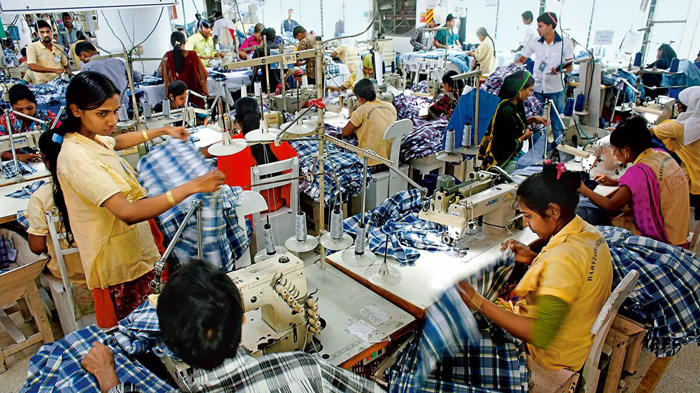More than 300 readymade garment factories in Bangladesh face the threat of closure since they have failed to make the required remedial progress. Among other steps, their export license may be suspended. Some 3,780 garment factories were assessed for fire, electrical and structural integrity by Accord and Alliance and other initiatives after the Rana Plaza building collapse in April 2013 that killed more than 1,100 people.
Now factories are inspected jointly by experts supported by ILO and the buyers’ platforms Accord and Alliance. Bangladesh now has 67 LEED (Leadership in Energy and Environmental Design) factories, certified by the United States Green Building Council, of which 13 are platinum. Seven out of world’s top 13 LEED certified factories are in Bangladesh and 280 more are in the pipeline for getting certification. Meanwhile the labor law was amended in July 2013 and another revision of the law is in progress. A workers’ welfare fund has been created to which the garment industry alone contributed around 10 million dollars last fiscal year. Before the Rana Plaza tragedy garment factories focused only on child labor, limiting working hours, wages for overtime duties and on achieving technical compliance like fire extinguishers, gloves, boots, helmets for workers.
Bangladesh may shut errant RMG units
- 1
- 2
- 3
- 4
- 5
- 6
- 7
- 8
- 9
- 10
Cinte Techtextil China 2025: Expanding horizons in technical textiles
Expanding opportunities with new product zones Cinte Techtextil China 2025 will return to the Shanghai New International Expo Centre from September... Read more
Shantou's Digital Transformation: Weaving a new future for China's textile indus…
Once known primarily for its traditional textile manufacturing, Shantou is rapidly becoming a shining example of digital transformation in China's... Read more
Are India-Bangladesh textile ties unraveling amidst unrest?
As political tensions simmer between India and Bangladesh, the intricate textile trade relationship between the two South Asian neighbors hangs... Read more
Cotton Industry in Crisis: Rising imports and policy gaps strain Pakistan's text…
Pakistan's cotton industry is at a critical juncture as a confluence of factors, including surging imports, policy inconsistencies, and a... Read more
The Widening Chasm: High-end vs affordable luxury in a changing market
While the desire for exclusivity and craftsmanship remains strong among luxury buyers, there is a clear bifurcation between high-end and... Read more
Italy and India: Weaving a future together in fashion, apparel, and textiles
Italy, renowned for its exquisite fashion, design, and textile machinery, is setting its sights on India, a land rich in... Read more
Wrap-Up 2024 Home Textiles: A year of transformation for the global home textile…
The global home textile market in 2024 was marked by changing consumer preferences, supply chain disruptions, and a growing emphasis... Read more
Wrap-up 2024 Fashion's Forward March: Five strategic shifts reshaping the indust…
The global fashion industry is changing constantly, pushed forward by evolving consumer demands, technological advancements, and socio-economic pressures. To stay... Read more
CITI urges India to reform cotton and textile policies for sector competitivenes…
India’s textile industry, a key contributor to the national economy, is facing significant challenges, particularly with rising raw material costs,... Read more
Wrap-Up Report 2024: The global denim fabric sector in all about transformation …
The global denim fabric sector was marked by both challenges and opportunities in 2024. While the industry grappled with economic... Read more












